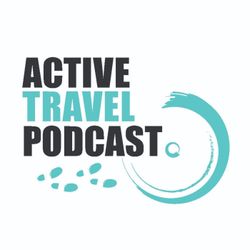Latest episode

2. School Streets
56:46||Season 4, Ep. 2Dr. Tom Cohen, Reader in Transport at Westminster University and member of the Active Travel Academy interviews Dr. Asa Thomas, who recently completed his PhD research with the Active Travel Academy. Show notes and transcript link available at https://blog.westminster.ac.uk/ata/school-streets-ata-podcast-20242/. Show notes by Professor Rachel Aldred and podcast editing by Chris Gregory of Alternative Stories.
More episodes
View all episodes

1. Accessibility and Urban Design
48:53||Season 4, Ep. 1Dr. Harrie Larrington-Spencer, Research Fellow at the Active Travel Academy, interviews Professor Aimi Hamraie, who directs the Critical Design Lab, and whose research focuses on disability, accessibility, and urban design. Show notes and transcript link available at https://blog.westminster.ac.uk/ata/accessibility-and-urban-design-ata-podcast-20241/. Show notes by Professor Rachel Aldred and podcast editing by Chris Gregory of Alternative Stories.
4. Queering Cartographic Methods
01:01:26||Season 3, Ep. 4Rachel Aldred, Professor of Transport and Director of the Active Travel Academy, interviews Ellis Fannin, a PhD researcher at the University of Manchester, about their research on queering cartographic methods. Show notes and transcript link available at https://blog.westminster.ac.uk/ata/queering-cartographic-methods/. Thanks to Ellis and to our ATA interns, Rob Coates (who prepared and edited the audio files) and James Stevenson (who corrected the transcript and wrote the show notes).
3. Barriers to Black men cycling in London
54:34||Season 3, Ep. 3Dulce Pedroso, PhD researcher at the Active Travel Academy, interviews Akwesi Osei of Possible about his research into barriers to Black men cycling in London. Show notes and transcript link available at https://blog.westminster.ac.uk/ata/barriers-to-black-men-cycling-in-london-ata-podcast-3/. Thanks to Akwesi and Dulce and to our ATA interns, Rob Coates (who prepared and edited the audio files) and James Stevenson (who corrected the transcript and wrote the show notes).
2. Planning for Trans Futures
01:05:02||Season 3, Ep. 2Professor Rachel Aldred, Director of the Active Travel Academy, interviews Matt C. Smith of Brighton University about their research into trans in planning, and trans experiences in the city. Show notes and transcript link available at https://blog.westminster.ac.uk/ata/planning-for-trans-futures-ata-podcast-20232/ Thanks to Matt and to our interns, Rob Coates (who prepared and edited the audio files), James Stevenson (who corrected the transcript and wrote the show notes), and Chinaemerem Obiegbu (who helped with the transcript).
1. Neurodiversity in the City
01:06:40||Season 3, Ep. 1Professor Rachel Aldred, Director of the Active Travel Academy, interviews Dr. Therese Kenna of University College Cork about her research into experiences of neurodivergence in the city. Show notes and transcript link available at https://blog.westminster.ac.uk/ata/new-ata-podcast-season/ Thanks to Therese and to our interns, Rob Coates (who prepared and edited the audio files) and James Stevenson (who corrected the transcript and wrote the show notes).
Still I Ride 2: How women of colour are challenging discourses in and through cycling
38:38|Cycling has always been about more than its health, economic and environmental benefits. The rise of women cyclists coincided with the age of the new, educated and independent woman. The early moral outcry over women’s cycling outfits and alleged damage to their feminine physical features may seem ridiculous today yet cycling continues to be linked to discourses about who can be visible, who can take space, and how.Over the past decades, cycling has been represented as a self-indulgent leisure activity. The media loves portraying cycling as an unsafe annoyance to other road users; something that only middle aged men in lycra engage in and benefit from. To some extent, the cycling culture has done little to change that perception and only very recently has started becoming a little less exclusive.My name is Dulce Pedroso and this project seeks to move beyond the discussion on barriers to cycling to understanding how those who are often not part of the cycling discourses experience and challenge dominant representations of cycling. Thanks to a grant through the Active Travel Academy Justice in and for Active Travel initiative, I was able to get my bike and myself on the train to travel to different parts of the country to ride with and talk with nine women who all identify as a Woman of Colour and, for whom cycling is a big part of their lives.In the previous episode we heard how the women I interviewed got into cycling and the role cycling now plays in their lives. In this second part, Zoe, Vera, Susan, Eden, Mildred and Sidrah reflect on how discourses around cycling interact with what it means to be a woman and a Person of Colour in our society especially when cycling and being visible in public space.We recorded these conversations while riding our bikes in late spring 2021, when the UK was just starting to emerge out of lockdowns. You will hear some traffic noise in the background and the sound quality isn’t always great. Most annoyingly, the technology failed during a couple of rides, so you will not hear everyone I spoke to, but if you are interested in the research and want to find out more, you do so via the Active Travel Academy, or find me on Instagram.I feel privileged to have been able to talk to the women who took part. They are challenging the status quo whether that is as ride leaders, social media influencers, cycling advocates, cycling industry insiders or just as individuals who are encouraging their friends and families to ride more. I hope you enjoy listening to these stories as much I enjoyed recording them!